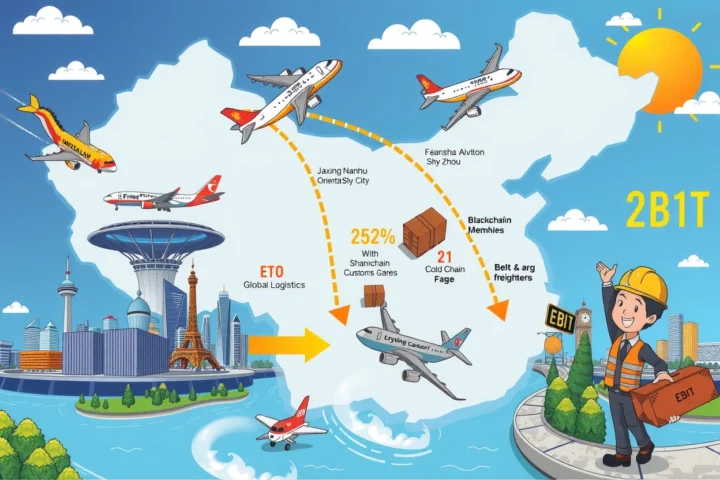Chengdu’s Core Districts Ignite Land Rush
As Chengdu reduced overall land supply in 2025, developers poured unprecedented capital into strategically positioned urban plots. The city’s land auction frenzy peaked when state-owned China Energy Engineering Corporation (CEEC) clinched a pure residential plot in Jinniu District’s Tea Flower sector for 20,200 yuan per square meter – shattering both neighborhood records and Jinniu District’s price ceiling.
This landmark deal concluded a first-half auction cycle where transaction volume leaped 55% year-over-year. According to China Index Academy data, Chengdu recorded 56 successful residential and mixed-use land sales totaling 42.39 billion yuan ($4.24 billion), marking a staggering 101% revenue surge from 2024.
Household names including China Resources Land, China Railway Construction, China National Travel Service Group, China Overseas Land & Investment, Yuexiu Property, China Jinmao, Poly Development, and CEEC competed aggressively. Industry experts describe the period with terms like ‘explosive’, ‘unprecedented’, and ‘hyper-competitive’, driven fundamentally by Chengdu’s curated ‘supply matching demand’ policy framework.
Executive Summary: Key Drivers
– Core-district premium plots with metro access drove bidding wars amid extreme scarcity
– Record-shattering prices: Jinjiang District (41,200 yuan/m²), Hi-Tech South Zone (31,700 yuan/m²), Qingyang District (24,700 yuan/m²), Jinniu District (20,200 yuan/m²)
– New apartment inventory in prime ‘5+2’ districts now cycles in just 6 months (CRIC data)
– State-owned enterprises led acquisitions with premium plots claiming 20.73% average premium rate
Historic Price Milestones Across Districts
Core urban territories cemented their dominance as pricing benchmarks reset across Chengdu. Four districts saw land values breach psychological barriers:
1. Jinjiang District – new Chengdu record: 41,200 yuan/m²
2. Hi-Tech South Zone – climbed to 31,700 yuan/m²
3. Qingyang District – peaked at 24,700 yuan/m²
4. Jinniu District – crossed 20,000 yuan/m² threshold
Wu Jiang (吴江), Director of Sichuan Centaline Property Research Institute, states: ‘Land scarcity defines Chengdu’s urban core – especially sectors like Tea Flower with the golden trifecta: Metro line access, commercial centers, quality schools.’ The newly acquired CEEC plot anchors district renewal plans replacing traditional wholesale markets like Wanguan Hardwares City. At over 537 acres, this represents Chengdu’s largest coordinated redevelopment zone.
Market velocity supports pricing. According to Yan Yuejin (严跃进), Deputy Director of Shanghai E-House Real Estate Research Institute: ‘High-quality land parcels create inherently competitive environments.’ Current primary buyer profiles show transformation:
Notable Transactions Shaping 2025 Values
– March 11: China Merchants Shekou took Hi-Tech South Zone plot (70.4% premium)
– March 27: C&D Properties captured Jinjiang District site – current city record holder
– June 19: Chinney Tea Factory plot auction exceeding 150 rounds
Quality Land Driving Acquisition Strategy
The ‘grab one plot whenever possible’ mentality crystallized among developers confronting Chengdu’s tightened supply quotas. Seven premium plots sold between January-June 2025 now rank among Chengdu’s TOP 20 historical land prices – displacing 2023-2024 benchmarks.
One anonymous sector executive reveals: ‘Every hotspot share location fundamentals. Cha Factory offers mature neighborhood vitality while Jing Three leverages untapped potential – both anchor Chengdu’s projected valuation peaks.’ This urgency reflects shifting risk calculations where premium location acquisition functions as market entry prepayment.
Metrics confirm qualitative impacts:
Market Impact Comparisons
– Average residential land premium: +12 percentage points YoY (8.98%→20.73%)
– Average land price/m²: +2,942 yuan YoY (8,401→10,823 yuan)
– Parcels exceeding 20,000 yuan/m²: 11 transacted individually – 33% of all time Chengdu total
Yan Yuejin (严跃进) observes: ‘Price benchmarks directly correlate with parcel quality competition. SOEs/state-backed developers aggressively targeting Chengdu indicate market optimism. Where Chengdu prioritizes premium land releases, auction heat persists.’
Developer Calculus Redefined
Behind headline premiums lies sophisticated tiered-market analysis reshaping acquisition tactics. Sun Kun (孙堃), Southwest Region Dean of Shell Research Institute, explains broader perceptions driving bids: ‘Developer confidence stems not merely from fierce competition – Chengdu systematically improves marginal territories via practical planning. This signals sustainable growth.’
Cosmopolitan professionals increasingly target Chengdu premium housing despite astronomical land valuations – sustained transaction volumes justify CRE strategic perspectives. One executive contends: ‘Ordinary observers see 40,000+ yuan/m² land expecting luxury prices. Enterprises see obtaining core district footholds before thresholds reset completely.’ Jinniu District’s journey exemplifies graduated maturation:
Chengdu Land Price Evolution
– 2020: 1st parcel exceeded 20,000 yuan/m²
– 2022: Recurrence after market cooling
– 2023: 7 parcels cleared threshold
– 2024: 13 parcels broke barrier
– 2025 (H1): 11 parcels set new high benchmarks
Sustaining Momentum Into Second Half
With Chengdu forecasting continued selective land release policies, analysts expect competitive concentration around premium urban corridors. As Yan Yuejin (严跃进) forecasts: ‘Enterprises will concentrate investments primarily in Chengdu-equivalent metro markets.’ Key catalysts underpinning forecasts:
Market Sustainability Factors
– Urban planning continuity enhances district interconnectivity
– SOE portfolios restructuring toward prime housing inventory
– Tangible absorption rates supporting premium valuations
Savvy developers engage early bidding consortiums while strengthening municipal relationships. Monitor Chengdu’s land reserve publications monthly – strategic plots appear without advance publicity. Conduct neighborhood-level absorption due diligence across primary and secondary markets. Evaluate district infrastructure pipelines – Chengdu Metro Line expansions routinely boost adjacent land valuations.
Developers implementing ‘grab one plot whenever possible’ acquisition strategies actively reshape Chengdu’s urban topography. Prioritize premium locations proactively or risk pricing thresholds shifting irreversibly beyond access. For comprehensive district analyses contact Cushman & Wakefield Chengdu.


















